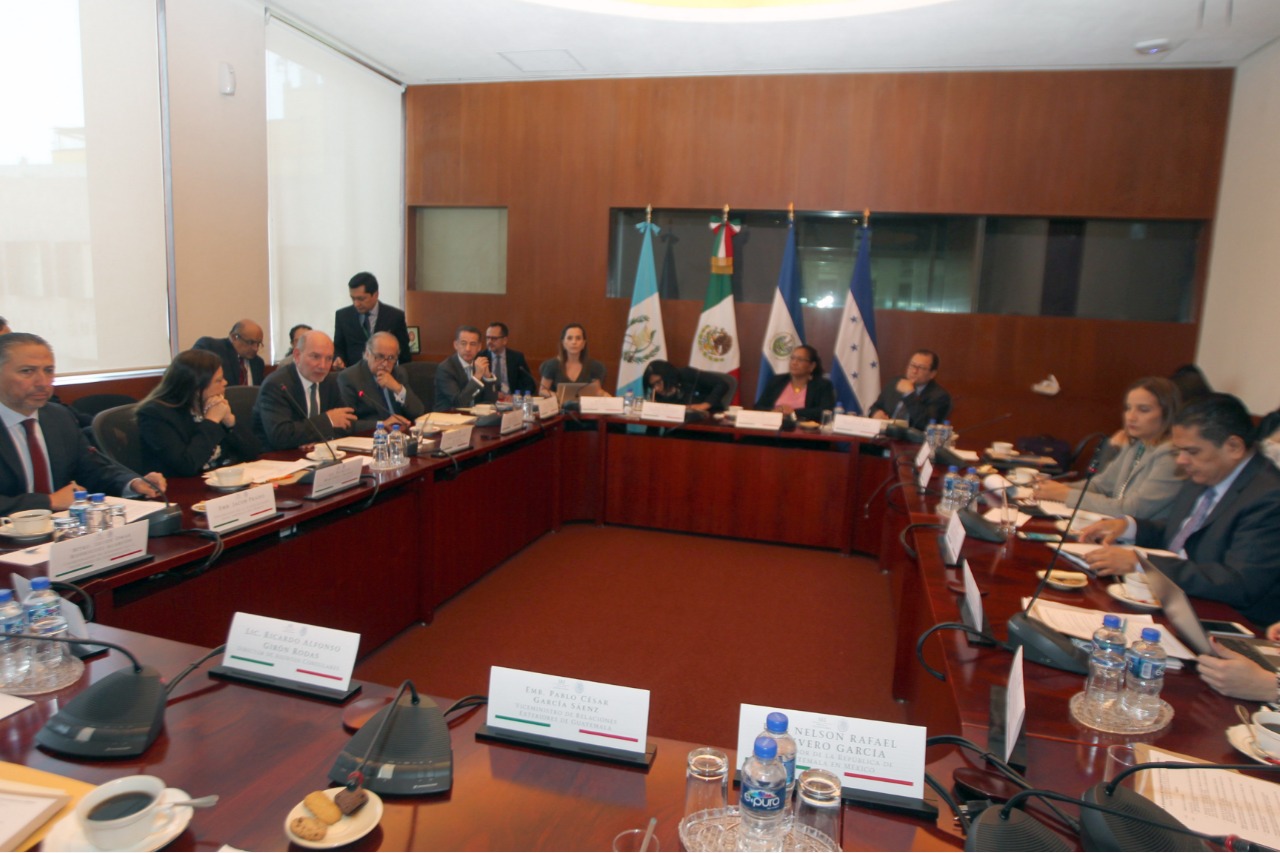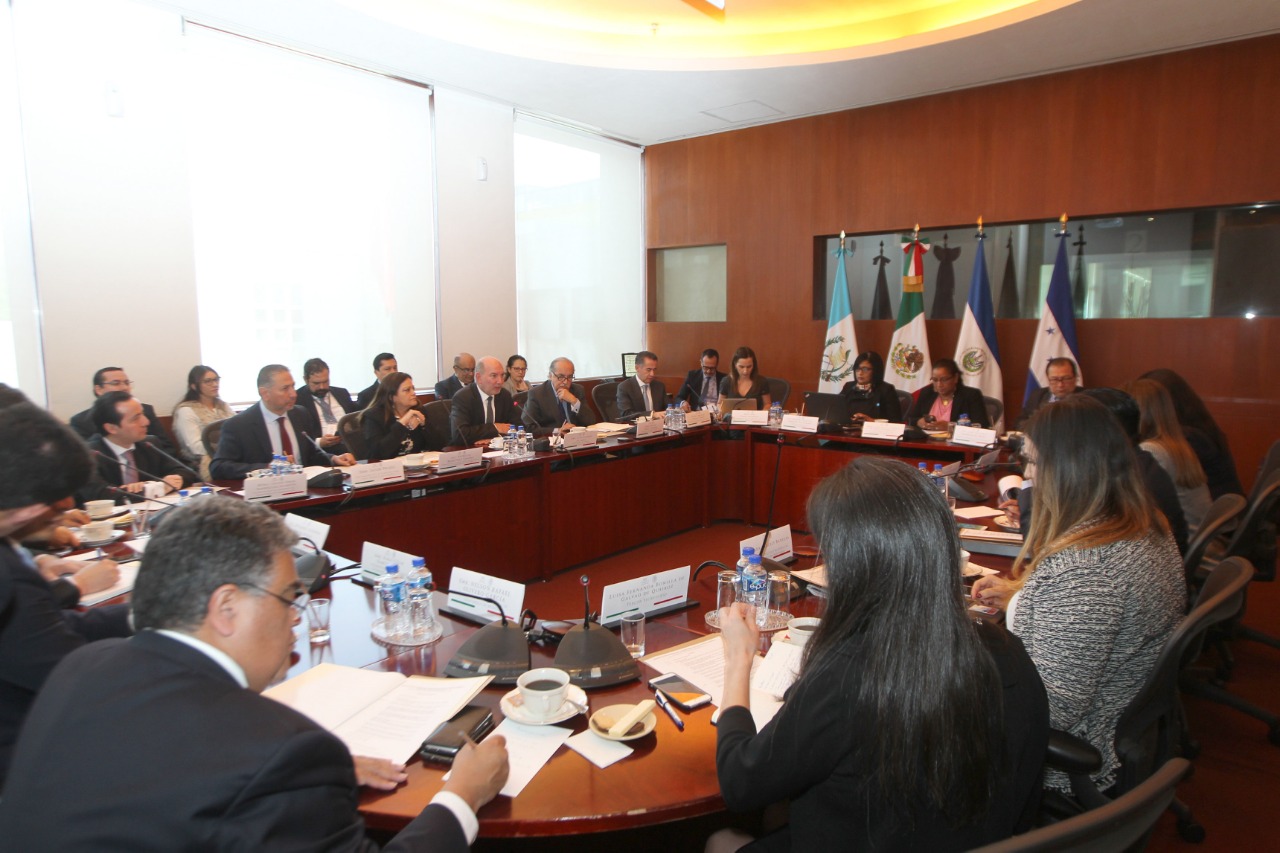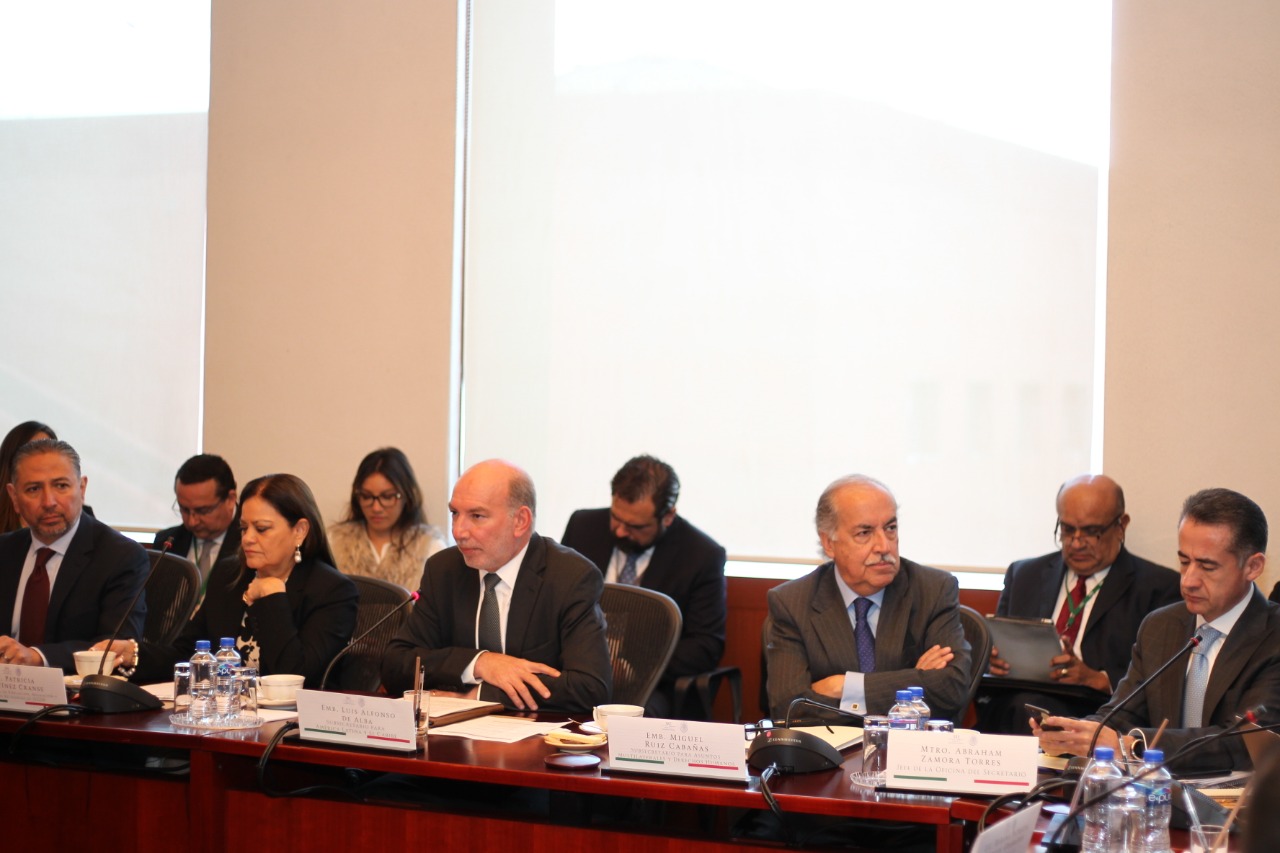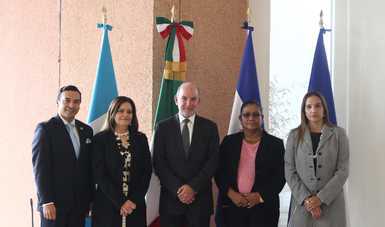The Foreign Ministry reports that the Deputy Ministers responsible for consular and migration issues in El Salvador, Guatemala, Honduras and Mexico met today to discuss the current situation of the Central American migrants, exchange views on the issue and agree on an immediate joint course of action.
The Deputy Ministers agreed that the flow of migrants that began in mid-October and continues today is unprecedented and atypical, and therefore requires special attention from governments in order to ensure respect for their human rights and provide humanitarian assistance, while keeping migration safe, orderly and regular and in accordance with the immigration laws of each country. The four countries agreed to increase and streamline their exchange of information in order to address the specific characteristics of this unprecedented migration. They stressed that the actions taken by their countries will be based on the principle of shared responsibility.
The Deputy Foreign Ministers reviewed the measures taken to address the situation of the Central Americans in each country; assessed current immigration policies and explained the resources that Mexico, especially, has made available to offer recognition of refugee status, as well as its Estás en tu casa (Make Yourself at Home) plan. They also shared information on how they have coordinated with the civil society organizations, different levels of government and international organizations that have accompanied Mexico since the beginning, such as the support given by the United Nations High Commissioner for Refugees (UNHCR) to immigration authorities at the request of the Mexican government.
The Deputy Ministers of El Salvador, Guatemala, Honduras and Mexico reaffirmed their governments' commitment to continue working together through groups such as the TRICAMEX consular group, made up of the consulates of the Northern Triangle of Central America and Mexico in the United States, and to keep in close contact regarding developments related to migration in the region.
The Deputy Ministers reaffirmed their countries' readiness to continue promoting programs to boost development and to help people remain in their home countries. They also highlighted the importance of information campaigns, undertaken jointly and in the four countries, aimed at migrants and potential migrants that realistically portray the risks entailed by irregular migration and explain the advantages of migrating in an orderly, regular and safe manner.
Mexico reaffirmed its commitment to continue working with the governments of the Northern Triangle countries to address the structural causes of migration by taking actions that promote economic and social development in the region, such as the programs on trade facilitation, energy integration, infrastructure (Yucatan Fund) and the alleviation of malnutrition (Mesoamerica Without Hunger), among others.
The meeting was chaired by the Undersecretary for Latin America and the Caribbean, Ambassador Luis Alfonso de Alba; with the participation of the Undersecretary for Multilateral Affairs and Human Rights, Ambassador Miguel Ruiz Cabañas; the Undersecretary of Population, Migration and Religious Affairs of the Interior Ministry, Patricia Martínez Cranss; the Deputy Minister for Salvadorans Abroad, Liduvina del Carmen Magarín de Esperanza; the Deputy Minister of Foreign Affairs of Guatemala, Amb. Pablo César García Sáenz; and the Undersecretary for Consular and Immigration Affairs of Honduras, Amb. Nelly Jerez Caballero.



